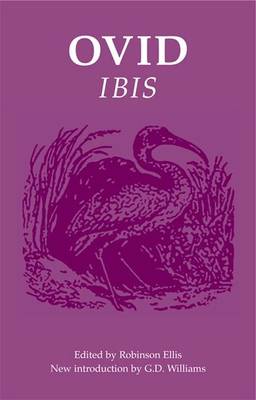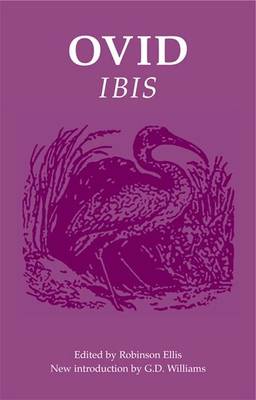
Door een staking bij bpost kan je online bestelling op dit moment iets langer onderweg zijn dan voorzien. Dringend iets nodig? Onze winkels ontvangen jou met open armen!
- Afhalen na 1 uur in een winkel met voorraad
- Gratis thuislevering in België vanaf € 30
- Ruim aanbod met 7 miljoen producten
Door een staking bij bpost kan je online bestelling op dit moment iets langer onderweg zijn dan voorzien. Dringend iets nodig? Onze winkels ontvangen jou met open armen!
- Afhalen na 1 uur in een winkel met voorraad
- Gratis thuislevering in België vanaf € 30
- Ruim aanbod met 7 miljoen producten
Zoeken
Omschrijving
Ovid's rarely studied Ibis is an elegiac companion-piece to the Tristia and Ex Ponto written after his banishment to the Black Sea in AD 8. Modelled on a poem of the same name by the Hellenistic poet Callimachus, Ibis stands out as an artistically contrived explosion of vitriol against an unnamed enemy who is characterised in terms of the Egyptian bird with its unprepossessing habits. Based in a tradition of curse-ritual, it is the most difficult of Ovid's poems to penetrate. Robinson Ellis's edition remains an indispensable - if typically eccentric - platform for the study of the poem's obscurities. Indeed Ellis deserves the primary credit for bringing Ibis back from obscurity into the light of day.This reissue of Ellis's 1881 edition includes a new introduction by Gareth Williams setting the edition in the context of earlier and later developments in scholarship. Ellis's edition not only made a significant contribution to research into the Ibis, it is an important representative of a particular vein of scholarship prevalent in nineteenth-century Latin study.
Specificaties
Betrokkenen
- Uitgeverij:
Inhoud
- Aantal bladzijden:
- 290
- Taal:
- Engels
- Reeks:
Eigenschappen
- Productcode (EAN):
- 9781904675204
- Verschijningsdatum:
- 17/10/2008
- Uitvoering:
- Paperback
- Formaat:
- Trade paperback (VS)
- Afmetingen:
- 137 mm x 213 mm
- Gewicht:
- 385 g

Alleen bij Standaard Boekhandel
+ 69 punten op je klantenkaart van Standaard Boekhandel
Beoordelingen
We publiceren alleen reviews die voldoen aan de voorwaarden voor reviews. Bekijk onze voorwaarden voor reviews.










